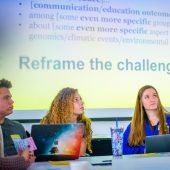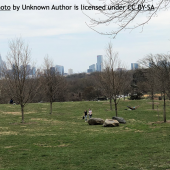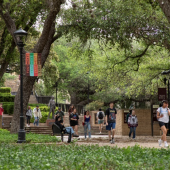
Abstract: While the majority of today’s youth accept climate change as a factual phenomenon, many educators and their curricula lag behind with a continued emphasis on confronting climate skepticism and denial. This article highlights our experience teaching a course, Climate Change and Sustainability, in which we encountered disruptive objections to our lessons from students who believe climate change is happening and desperately want action. However, the all-or-nothing stance of these students stifled conversation, and their lack of engagement with various topics kept them uninformed. To address these issues, we recommend structuring classroom debate around consensus-building activities to practice solution-oriented communication.
Continue Reading
Abstract: This case study discusses the implementation of a park audit project with undergraduate college students in teacher education and public health programs. With a focus on drawing attention to the importance of urban green spaces in these two professional fields, the design of this project extended course activities into local parks. Students prepared to conduct park audits by engaging with course material focused on the importance of urban green spaces for individual health and children’s development, as well as inequities in access to high quality parks. The capstone of the course project was the audit of parks using the Community Parks Audit Tool (CPAT) in which each student assessed several parks in their local communities and documented their findings. This article discusses the contextual relevance of this project, its value in increasing attention to environmental considerations in the education and public health fields, as well as student responses to the implementation of the project in these specific classes.
Continue Reading
Abstract: The concept of sustainability has been gaining increasing attention worldwide, especially over the last 30 years. To foster sustainable development, education plays a crucial role. Higher education institutions have assumed the leading role in sustainability education and advocating sustainability. However, the literature that evaluates sustainability initiatives at higher education institutions is still fragmented and sparse, with existing studies often focusing on certain aspects of the sustainability initiatives. We designed a questionnaire that covers a broad spectrum of sustainability measures in the operation, curriculum, research, and outreach, which allowed us to investigate the perceived importance of those sustainability initiatives from the perspective of university community members including undergraduate students, graduate students, faculty, and staff at Texas State University in San Marcos. Our results indicated that the Texas State University campus community believes that the themes of Waste Management, Buildings & Infrastructure, and Water Use & Management were the most important themes. The campus community believed that Transportation and Academics are the least important themes. We also identified a set of action items under each theme the most and least important.
Continue Reading